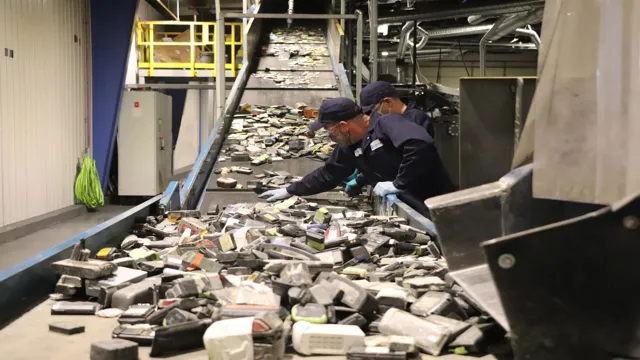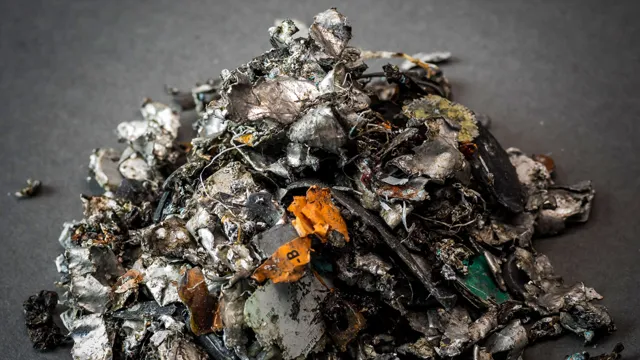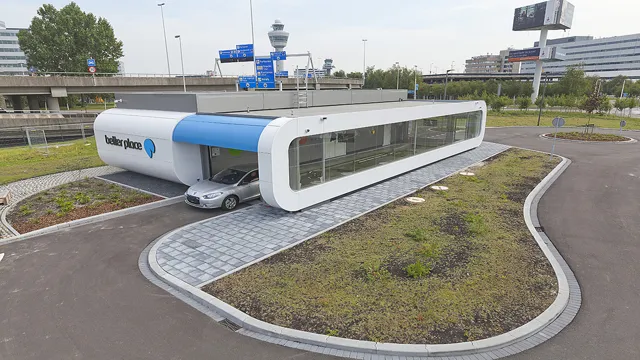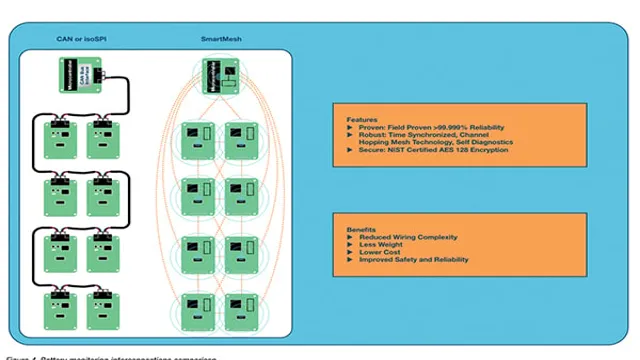Unpacking the Truth: Debunking the Myth that Electric Car Batteries are Bad for the Environment
Electric cars have been hailed as the future of transportation due to their eco-friendly nature, producing little to no emissions while on the road. However, some critics argue that the lithium-ion batteries used to power these vehicles are just as harmful to the environment as their gasoline-powered counterparts. So, are electric car batteries bad for the environment? This is a complex issue that requires a thorough understanding of how these batteries are produced, used, and disposed of.
In this blog post, we will explore this topic in detail, examining the potential environmental impacts of electric car batteries and the ways in which these impacts can be mitigated.
Environmental impact of battery production
Many people wonder if electric car batteries are bad for the environment. The answer is not a simple yes or no, as the production process of these batteries has both positive and negative impacts. On the positive side, electric car batteries help reduce greenhouse gas emissions by eliminating the need for gasoline-powered cars.
This ultimately helps in curbing air pollution and climate change. However, the production of batteries comes with its environmental challenges such as the mining of raw materials, the energy-intensive production process, and the disposal of used batteries, which contain toxic chemicals that can harm the environment if not handled properly. Despite these impacts, many companies are working towards minimizing the environmental impact of battery production by recycling batteries, using renewable energy during production and using eco-friendly manufacturing processes.
It’s worth noting that the benefits of electric car batteries greatly outweigh the environmental challenges they pose, and with continued effort towards sustainability, their impact can be reduced even further.
Raw material extraction and processing
When it comes to the production of batteries, it is important to consider the environmental impact of the process. One major concern is the extraction and processing of raw materials such as lithium, cobalt, and nickel. These materials are often mined from ecologically sensitive areas and can cause damage to the surrounding ecosystems.
Additionally, the production process itself can lead to significant pollution and waste. For instance, the lithium extraction process often involves pumping large amounts of water from underground aquifers, which can deplete local water resources. Further, the processing of these materials involves the use of energy-intensive and toxic chemicals, which can lead to air and water pollution.
While efforts are being made to improve the sustainability of battery production, it is clear that continued innovation and a focus on reducing the environmental impact of raw material extraction and processing is crucial.

Greenhouse gas emissions from production
The production of batteries is known to have a significant impact on the environment, particularly in terms of greenhouse gas emissions. The manufacturing process involved in the production of batteries generates a considerable amount of carbon dioxide, making it a major contributor to global climate change. Lithium-ion batteries, for instance, require a significant amount of energy to produce, and the energy is usually derived from fossil fuels.
This is why the mining and production of these batteries can have a harmful impact on the environment. However, there are numerous steps taken by manufacturers in the past few years to improve battery production and reduce their impact on the environment. These steps include the use of renewable energy sources, recycling and reusing batteries, and using materials that have a significantly lower environmental impact.
Additionally, new technologies are being developed, such as solid-state batteries that offer higher energy densities and have lower greenhouse gas emissions. These developments show promise for reducing the environmental impact of battery production and promoting cleaner energy sources for the future.
Potential for toxic waste pollution
When it comes to the production of batteries, there is a significant environmental impact to consider. One major concern is the potential for toxic waste pollution. The manufacturing process of batteries often involves the use of hazardous chemicals and materials, such as lead, cadmium, and nickel.
If not properly disposed of, these materials can leach into the soil, water, and air, causing harm to both the environment and human health. Considering the exponential growth in demand for batteries in recent years, it is crucial for companies to prioritize sustainable and responsible production methods that minimize the release of toxic waste. Investing in recycling programs and implementing safer production processes can greatly reduce the negative environmental impact of battery production.
Benefits of electric cars for environment
Are electric car batteries bad for the environment? This is a question that has been asked by many people, and the answer is not straightforward. While electric cars are environmentally friendly in terms of emissions, the production and disposal of their batteries do have an impact on the environment. The production of electric car batteries requires the mining of minerals such as lithium and cobalt, which can have adverse effects on the environment and communities located near these mines.
Additionally, the disposal of batteries can lead to environmental pollution if not properly done. However, many car manufacturers are taking steps to reduce the impact of electric car batteries on the environment. For example, they are working on ways to recycle batteries and reduce the amount of materials needed to produce them.
Ultimately, while electric car batteries do have an impact on the environment, it is important to consider the overall benefits of electric cars in reducing emissions and air pollution.
Reduced greenhouse gas emissions
Electric cars are rapidly gaining popularity, and one of their biggest advantages is their reduced greenhouse gas emissions. Traditional gasoline-powered cars emit greenhouse gases such as carbon dioxide and methane, which contribute to global warming. On the other hand, electric cars emit far fewer greenhouse gases – in fact, no tailpipe emissions are produced at all if the electricity used to power the car comes from renewable sources like solar or wind power.
Even when the electricity comes from fossil fuels, electric cars still produce significantly fewer emissions than traditional cars. This means that driving an electric car instead of a gasoline-powered car can help reduce your personal carbon footprint and contribute to a cleaner environment by lowering overall greenhouse gas emissions. Additionally, as more energy sources transition to renewable and clean energy, the benefits of electric cars will only increase.
Improved air quality in cities
Electric cars have brought about a significant reduction in air pollution in urban areas. They operate on an electric motor, which means they emit no harmful emissions into the air compared to traditional combustion engines. This benefit of electric cars helps to improve urban air quality since cities have a high concentration of traffic, leading to heavy air pollution, especially during peak hours.
Traditional vehicles with gasoline engines emit toxins such as carbon dioxide, nitrogen oxide, and sulfur dioxide, all of which have serious health implications for humans. With the widespread adoption of electric cars, the environment and public health have received a boost, thanks to less air pollution. Going electric is undoubtedly a viable option for reducing urban air pollution and making our cities more environmentally friendly.
Reduced dependence on fossil fuels
Electric cars are an excellent alternative to traditional fossil fuel-powered vehicles with many environmental benefits. One significant advantage that electric cars offer is their reduced dependence on fossil fuels. Unlike traditional vehicles that run on gasoline or diesel, electric cars are powered by rechargeable batteries, which can be recharged using renewable energy sources like solar or wind power.
This reduced dependence on fossil fuels is beneficial for the environment in several ways. It helps to reduce greenhouse gas emissions and pollution, leading to cleaner air and a healthier planet. Additionally, electric cars can also help to reduce our dependence on foreign oil, which can have significant geopolitical benefits.
Overall, electric cars are an excellent choice for environmentally conscious drivers who want to reduce their carbon footprint and make a positive impact on the planet. So, if you’re looking for a greener, more sustainable mode of transportation, electric cars are definitely worth considering.
Recycling and disposal of electric car batteries
Electric car batteries have been lauded for their ability to reduce carbon emissions and increase fuel efficiency, but concerns have been raised about their impact on the environment once they are no longer usable. The truth is that electric car batteries can pose environmental challenges if not disposed of properly. First, the manufacturing process of these batteries requires large amounts of energy, raw materials, and chemicals, which can take a toll on the environment.
Second, the disposal practices of these batteries can be harmful, as they contain toxic chemicals such as lead, nickel, and lithium, which can leach out into the soil and groundwater, polluting the ecosystem and endangering human health. However, with proper recycling and disposal methods in place, electric car batteries can be safely reprocessed and their components repurposed, thereby reducing the need for new resources and keeping toxic chemicals out of the environment. So, are electric car batteries bad for the environment? It depends on how they are treated at the end of their lifecycle.
Current recycling and disposal methods
When it comes to the disposal and recycling of electric car batteries, current methods vary. While there is no one-size-fits-all solution, there are steps being taken to ensure the proper handling of these batteries. One option is to repurpose them for energy storage, which can help offset costs and reduce waste.
In some cases, they can also be sold to companies that specialize in recycling these materials. However, the process of extracting materials like lithium and cobalt can be complex, and not all recycling facilities have the capabilities to handle this type of waste. As the demand for electric cars increases, it is crucial that we continue to develop effective and sustainable methods for battery disposal and recycling.
By doing so, we can minimize the environmental impact and maximize the benefits of this innovative technology.
Advancements in battery recycling technology
Recycling and disposal of electric car batteries have become more critical than ever before due to the growing number of electric vehicles on the road. But advancements in battery recycling technology have made it possible to recycle and reuse these batteries rather than send them off to landfills. These advancements involve using specialized tools to break down the batteries’ components to extract reusable materials such as cobalt, lithium, and nickel.
This process helps decrease the demand for new materials, which can be costly and harmful to the environment. Plus, it reduces the negative impact on the environment by lowering greenhouse gases emitted by discarded batteries. The future of battery recycling technology looks promising with several new initiatives focused on making the process more sustainable and cost-effective.
With these advancements, we can look forward to a greener, cleaner, and more sustainable world for future generations.
Conclusion
In conclusion, the statement “are electric car batteries bad for the environment” is a bit of a loaded question. While it’s true that manufacturing and disposing of these batteries can have negative impacts on the environment, the benefits of electric cars far outweigh the drawbacks. Not only do they emit fewer greenhouse gases than traditional cars, but they also promote the development of renewable energy sources and reduce our dependence on fossil fuels.
So, while electric car batteries may not be perfect, they’re certainly a step in the right direction towards a cleaner and more sustainable future.”
FAQs
What is the impact of electric car batteries on the environment?
Electric car batteries have a lower impact on the environment as they emit fewer greenhouse gases compared to traditional gas cars. However, the production and disposal of these batteries can have negative effects.
How are electric car batteries disposed of?
Electric car batteries can be recycled, but if not done properly, it can lead to environmental damage. Some battery components are also considered hazardous waste and must be disposed of carefully.
Are there alternatives to electric car batteries?
There are alternative options such as hydrogen fuel cells, but electric car batteries are currently the most widely used and accessible option.
Can electric car batteries be reused?
Electric car batteries can be reused, but their effectiveness depends on various factors such as age, usage, and maintenance. These reused batteries can also be used in stationary storage systems, such as backup generators.






